
Women and children are disproportionately affected by natural disaster and war - pregnant women face dangerous deliveries and, in unprotected refugee settlements, rape, trafficking and gender-based violence increase. IPPF delivers essential lifesaving services for women, men and children in times of crisis.
Articles by Emergencies
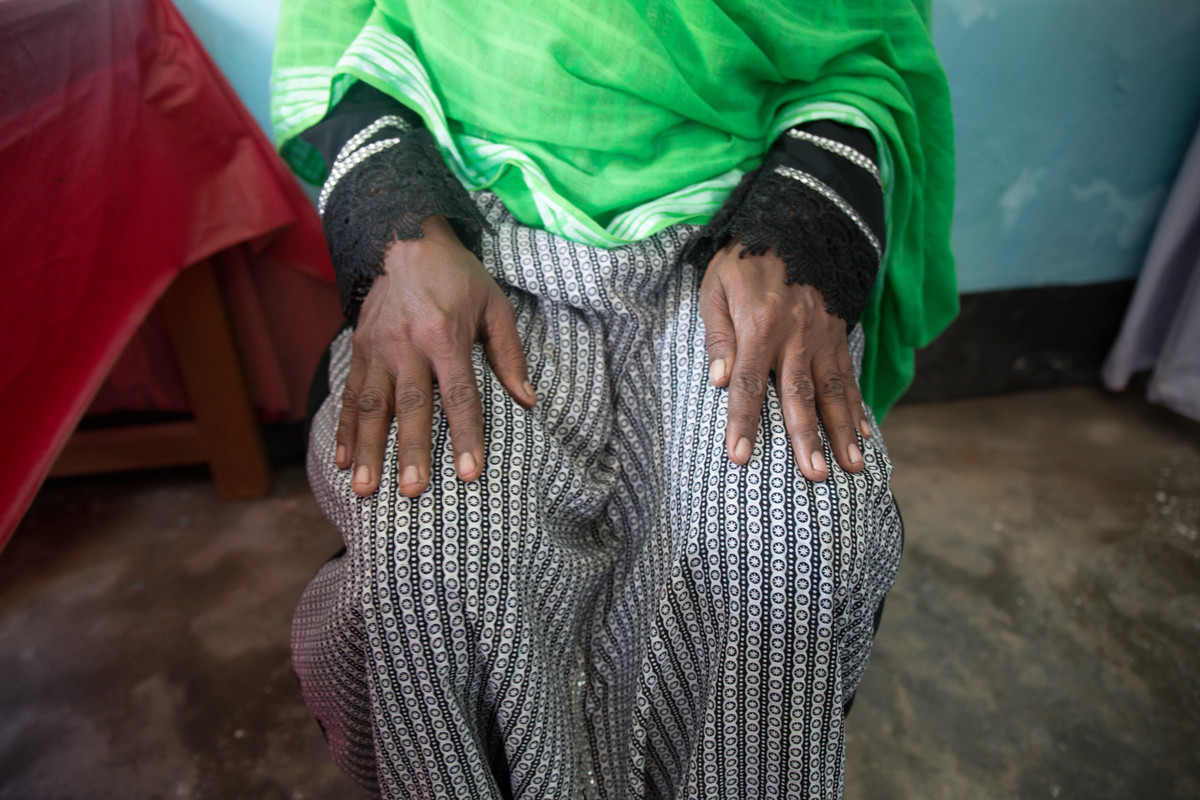
“After the menstrual regulations services I was prescribed a few medicines which I could not buy due to poor financial condition”
Menstrual regulation, the method of establishing non-pregnancy for a woman at risk of unintended pregnancy, has been a part of Bangladesh’s family planning program since 1979. It is allowed up to 10 –12 weeks after a woman’s last menstrual period. When Shana Khatun, a mother of three, became pregnant again she says she began to feel very weak and had issues with massive bleeding.Citing her age and the possibility of further medical complications, Khatun decided to undergo a menstrual regulation procedure. “But if the hospital and services weren’t there then I would have had to have continued with my pregnancy, even when (I do) not want another child” she says. Khatun says that the procedure went well, but that without the presence of medicine found in Kit 8 she would have lacked post-operation medicine. “After the menstrual regulations services I was prescribed a few medicines which I could not buy due to poor financial condition,” she says. “But the hospital gave me a number of medicines that I could take.” And while Khatun had talked with women about various family planning methods, she didn’t feel she could talk with anyone aside from her husband about getting the procedure. “I feared they would treat me poorly (the hospital),” she says. But Kahtun says she found the hospital trustworthy and helpful, even when she was suffering complications such as mass bleeding. “I will be very cautious that I should not get pregnant again however in event if I get pregnant again then I will come to this hospital only,” she says.
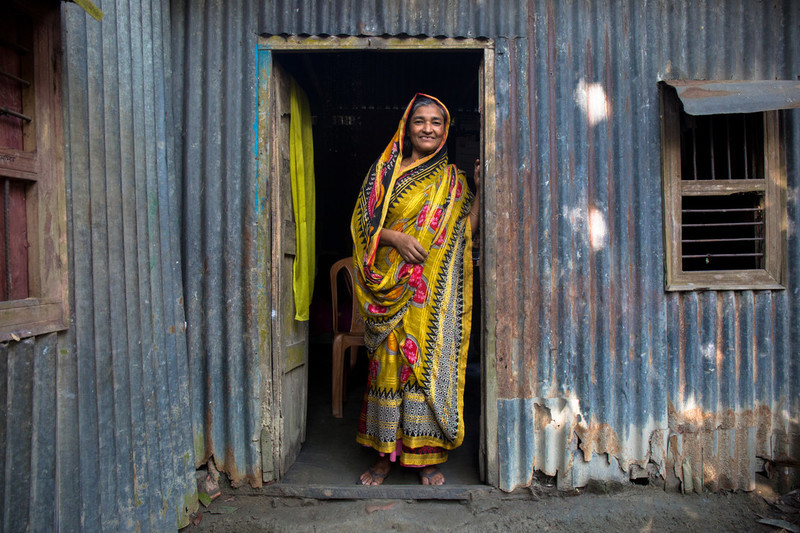
Small scale innovation in Bangladesh during times of crisis: ensuring reproductive care to local communities
In times of humanitarian crises and disasters, the inability to access health care during floods can have serious repercussions on the local community. As part of their Innovation Programme project, our South Asia office in collaboration with the University of Leicester and the Government of Bangladesh provides reproductive health kits to health centres located in areas most prone to seasonal flooding. Known as 'Kit 8' it contains three months’ worth of medicine and equipment for the management of miscarriage and complications of abortion and menstrual regulation in emergency situations, essential to minimize associated morbidity and mortality. Medical staff are trained to administer procedures and provide post-procedure care. While abortion is considered illegal in Bangladesh, menstrual regulation, which has been a part of the country’s family planning program since 1979, is allowed up to 10–12 weeks after a woman’s last menstrual period. Photography © IPPF/Victoria Milko
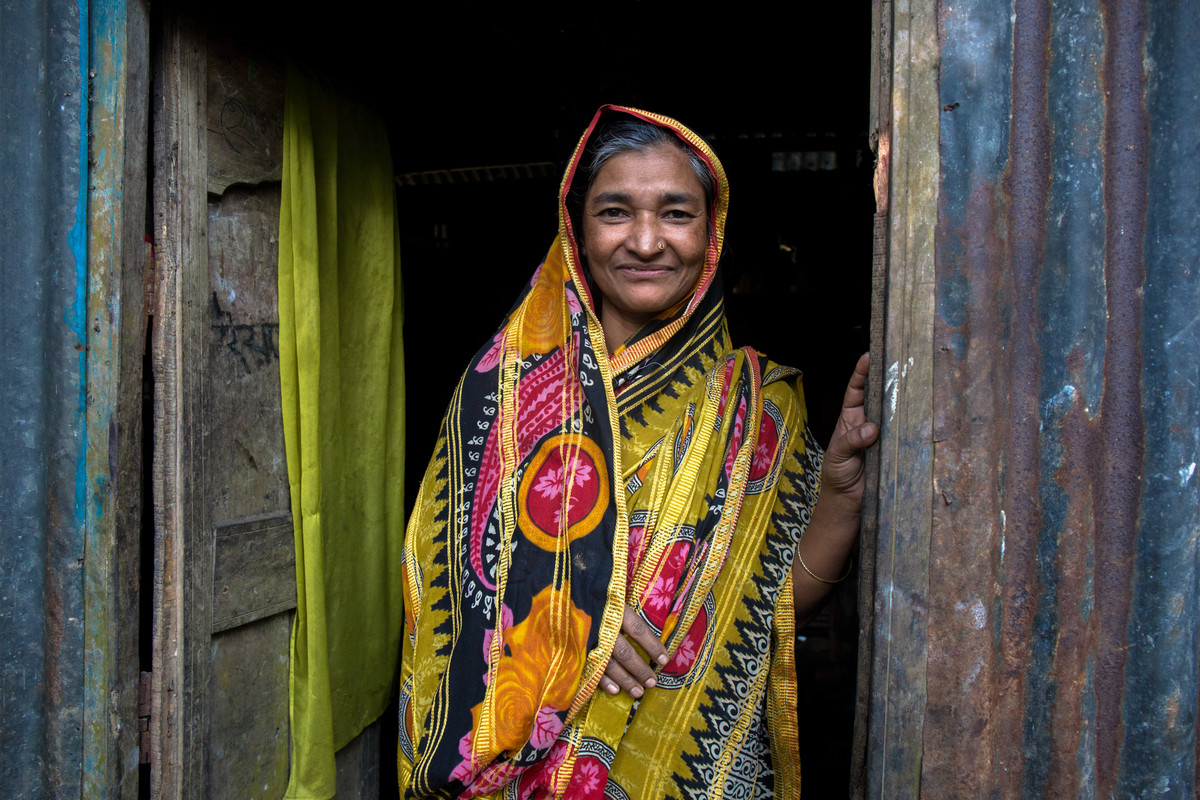
“My spouse was supportive and he gave me the freedom to come to this decision myself”
Menstrual regulation, the method of establishing non-pregnancy for a woman at risk of unintended pregnancy, has been a part of Bangladesh’s family planning program since 1979. It is allowed up to 10 –12 weeks after a woman’s last menstrual period. Auliya Khatun, a mother of three children, was 40 years old when she found out that she had unintentionally become pregnant again. Khatun says she had heard about family planning services and menstrual regulation services available at the Upzila Health Complex from other women in her small village. She discussed the option of undergoing menstrual regulation with her husband. “My spouse was supportive and he gave me the freedom to come to this decision myself,” Khatun says. “If this service was not available then I would have carried on with the pregnancy. It would have been embarrassing, though,” she explains. “It is embarrassing to have another child at this age.” Khatun, who sometimes assists her husband with work in a local handloom, also cited the financial burden another child would have on her family. “We are facing financial difficulty so it is not possible to have another child.” Khatun says she only experienced mild gastric discomfort after the procedure but felt assured about her recovery due to being able to check-in with doctors at the local health centre. The access to the services and doctors, she says, was a major factor in a smooth and easy recovery. “Since this service was in a government facility I could prevail [through] this and survive,” she says. “It is an important service.”
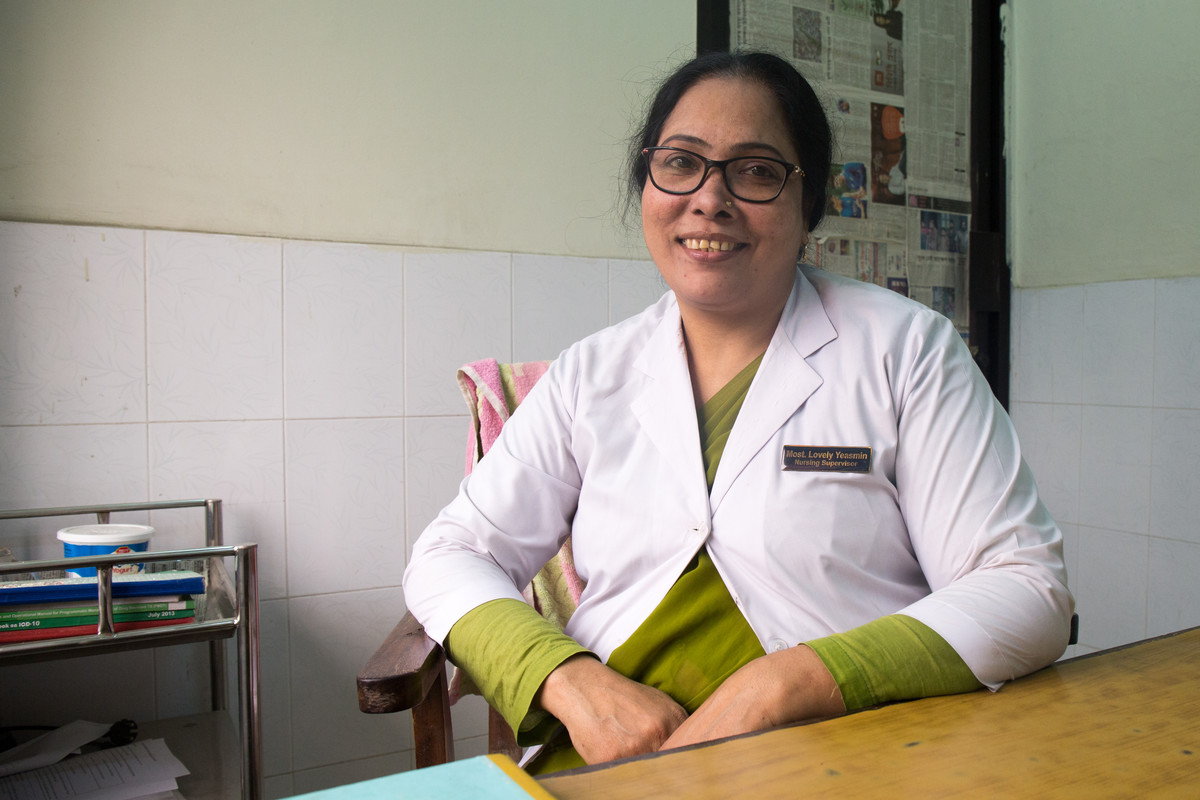
Ensuring women and girls receive healthcare during humanitarian crises in Bangladesh
In Bangladesh menstrual regulation, the method of establishing non-pregnancy for a woman at risk of unintended pregnancy, has been a part of the country’s family planning program since 1979 and is allowed up to 10 –12 weeks after a woman’s last menstrual period. There are no legal restrictions on providing post-abortion care. Dhukuriabera Family Health & Welfare Centre is prone to flooding during rainy season in Bangladesh. The watermarks on the walls of the clinic from last year’s flood almost reach the ceiling, and serve as a reminder of the extreme circumstances staff at the centre face in providing vital healthcare during a humanitarian crisis. “Our office was flooded. We had to stand on chairs,” says Salma Parvin, a staff member of the centre, pointing to mildew marks on the walls. “Very few patients came to access services.” “During floods there are lots of challenges,” says Dr. Laila Arjumand Banu at the Belkuchi Upazila Health & Family Planning Complex. “People get stuck and may forget to use the normal family planning methods.” The inability to access medical centres during floods can have other repercussions. “[When there are floods] clients sometimes have a procedure done by a village provider and thereafter come to us with complications,” says nursing supervisor Lovely Yasmin. “And then we have to provide services with [medical equipment] that we don’t have.” As part of their Innovation Programme project, IPPF’s South Asia office the IPPF South Asia office in collaboration with the University of Leicester and the Government of Bangladesh have has begun distributing UNFPA’s reproductive health kit 8 in strategic locations most prone to seasonal flooding. Kit 8 contains three months’ worth of medicine and equipment for the management of miscarriage and complications of unsafe abortion in emergency situations, essential to minimize associated morbidity and mortality. “I find the kits very useful,” says nurse Lipara Khatun. “Patients will benefit as they can avail these services closer to home and not have to come all the way to centres.” At her home in the village of Charmokimpur, Bijli Khatun, 32, explains how flooding was just one of many challenges her unplanned pregnancy presented. “One of [my] children is disabled and so the fear of possibly another disabled child was scary,” Bijli Khatun says. “And during the pregnancy I felt a lot of pain in my stomach and decided to get menstrual regulation.” Bijli Khatun’s husband had heard about menstrual regulation services at the local health centre. Bijli decided she would undergo the procedure, but soon realized she would face some issues. “The area surrounding my house was submerged in water,” she explains. “With great difficulty I went to the centre and it was closed that day so I had to come back and once the water receded then I went to the centre again and got a menstrual regulation procedure done.” Even with legal validity, social stigma is another factor women have to consider. “Women who come are hesitant and do not share their health problem easily,” says nurse Lovely Yasmin. “They expect complete confidentiality… as people are religious and [the woman] might have problems at home or in her locality.” The programme also provides vital post-procedure care –most commonly pain relief- of which many women who undergo menstrual regulation, would be unable to afford themselves. Shana Khatun, 34 says “After the menstrual regulation services the hospital gave me a number of medicines I could take, I was also prescribed a few medicines which I could not buy due to [my] poor financial condition.” Shubhutara is another client. She’s 32 and a mother of four, and decided to undergo menstrual regulation services after finding out she was pregnant again. “Even though I have [undergone] menstrual regulation I would not want to tell others,” she says. “They will feel I have sinned and they will insult me.” Several of the women feared being identified by the community, saying they would face a backlash due to conservative religious beliefs held in the region. Shana Khatun says she found the hospital trustworthy and helpful. “I will be very cautious that I should not get pregnant again,” she says. “However in the event I get pregnant again, then I will come to this hospital only.” IPPF’s Innovation Programme supports small scale initiatives, which test new ways to tackle the biggest challenges in sexual and reproductive health and rights. Each project is partnered with a research organization, in this case the University of Leicester, to ensure their impact is measured and learning shared to improve the efficacy and evidence-base of our programming.
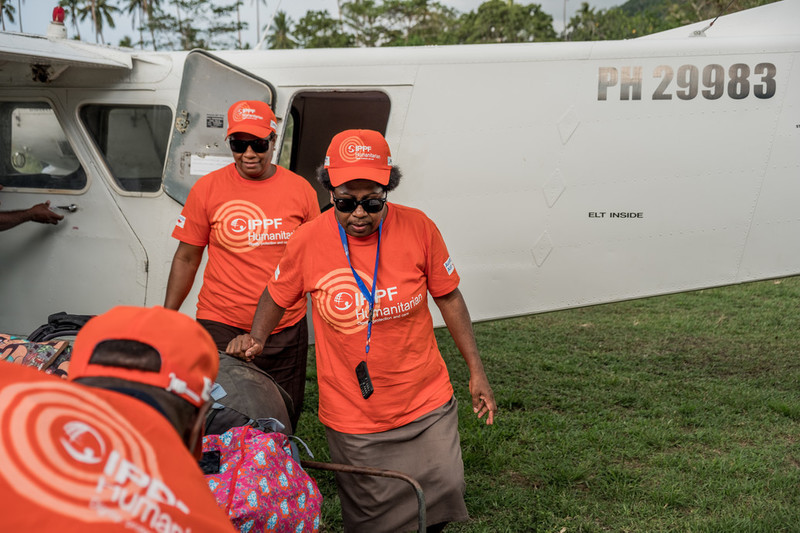
Humanitarian response team ensures safe delivery of emergency supplies following volcanic eruptions, Vanuatu
Toxic fumes due to seismic activity in Manaro Voui volcano, Vanuatu, forced the entire island population to be evacuated. Once the threat level was decreased and the population returned, the Vanuatu Family Health Association, through the International Planned Parenthood Federation, commenced a humanitarian response with mobile health clinics and awareness sessions. The services available through the clinics included pregnancy and delivery support, contraceptives such as condoms, injectables, implants and emergency contraceptives, and screening and management of sexually transmitted infections. Photography © IPPF/Kathleen Prior Read more
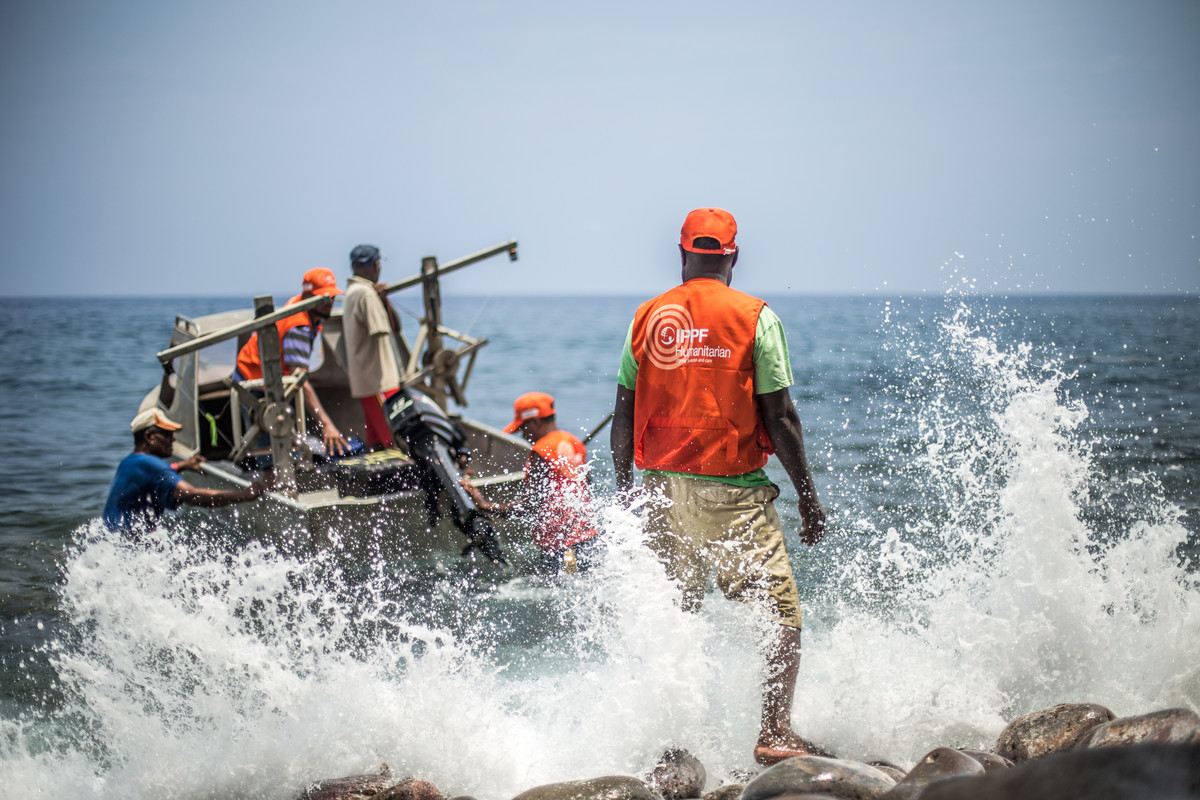
Emergency care in the most disaster-prone country in the world
“All I do is sit and cry with my children. I want family planning so bad. I’ve known about it, but I have never managed to get it,” says Esther, 31, sitting in the tiny village on the island of Ambae, in Vanuatu. On her lap is her youngest child, Elijah. Next to her on the mat is her two-year-old child, Stewart. Running around outside her modest house are her four other children - George, 12, James, 10, Steven, 8, and Judith, 6. Esther lives on the Manaro Voui volcano in Vanuatu - where sudden recent seismic activity causes it to belch toxic fumes. Esther’s husband is barely home. Her second youngest, Stewart, has a disability and cannot walk. Her youngest, Elijah, was born one week before the family were forced to evacuate to another island. Entire island evacuated On her own, Esther packed up their home and safely brought her children to the evacuation centre. This was the first time that an entire island population had been evacuated in the Pacific Region. Once the threat level was decreased and the population returned, the Vanuatu Family Health Association, through the International Planned Parenthood Federation, commenced a humanitarian response with mobile health clinics and awareness sessions. The services available through the clinics included pregnancy and delivery support, contraceptives such as condoms, injectables, implants and emergency contraceptives, and screening and management of sexually transmitted infections. Often the communities were in areas that were impassable by road, so the VHFA response team - which included nurses and midwives - travelled by boat and foot with their medical supplies to reach those closest to the crater. Esther lived in one of those villages, evident by the smoke constantly billowing out of the crater in the near distance. Raising six children alone was already difficult for Esther but her life was made even harder during and after the evacuation. Emergency situations are particularly unsafe for women and children, who are more likely to die during an emergency than men. Transmission rates of sexually transmitted infections - including HIV - increase during an emergency, as does sexual violence and maternal deaths. Esther desperately wanted access to long term contraceptives. The nearest clinic for her is a two-hour way away, almost impossible with six children in tow. When the Vanuatu Family Health Association arrived at her village they were able to counsel her about her contraceptive options, and return the following week to give Esther a five-year contraceptive implant. Increased sexual literacy ‘Mothers do everything in Vanuatu, so having a smaller family makes it easier to move around in emergencies,’ says Julie Aru, a nurse working with VHFA during their humanitarian response. This is particularly important in Vanuatu, which according to the World Risk Index, is the most disaster-prone country in the world. ‘But the biggest issue is isolation. Mothers do not have access to family planning even in stable times,” says Julie. “The second issue is ‘kastom’ - religious and cultural beliefs – which sometimes don’t allow women access to family planning. We are working to change this.” Whilst emergencies create immense challenges, they also provide opportunities for organisations like the Vanuatu Family Health Association to reach remote communities such as Esther’s, to increase sexual literary rates, and to provide women with reproductive choices. By the end of the response, VHFA had reached over 1,600 people across the southern part of Ambae Island with sexual and reproductive health care and information, and 480 dignity kits were distributed on North and East Ambae.
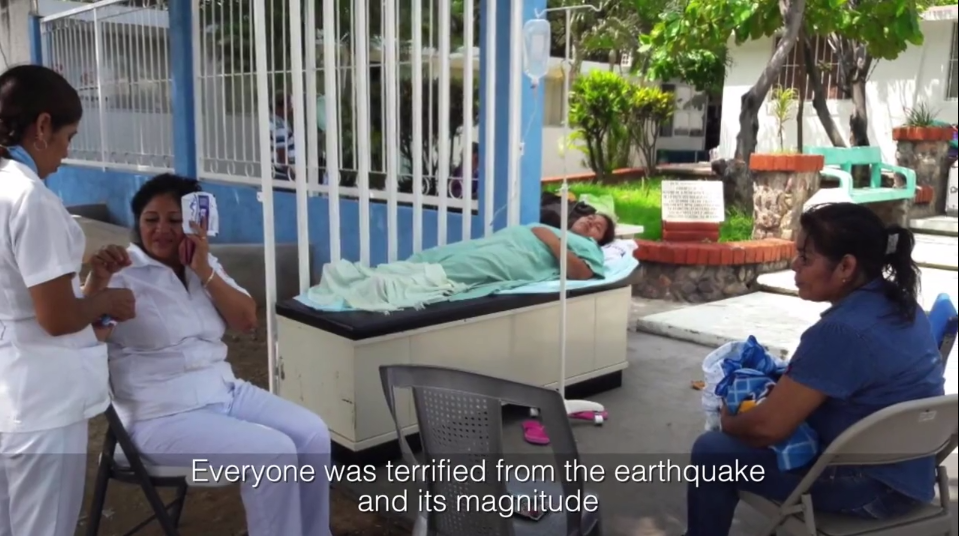
Resilience
Mexfam, IPPF member association in Mexico, continued to provide free healthcare during and after the record-breaking earthquakes in September 2017, despite many members of staff losing their homes and even family members. This is what resilience looks like and we thank those that continue to provide people with vital sexual and reproductive healthcare.
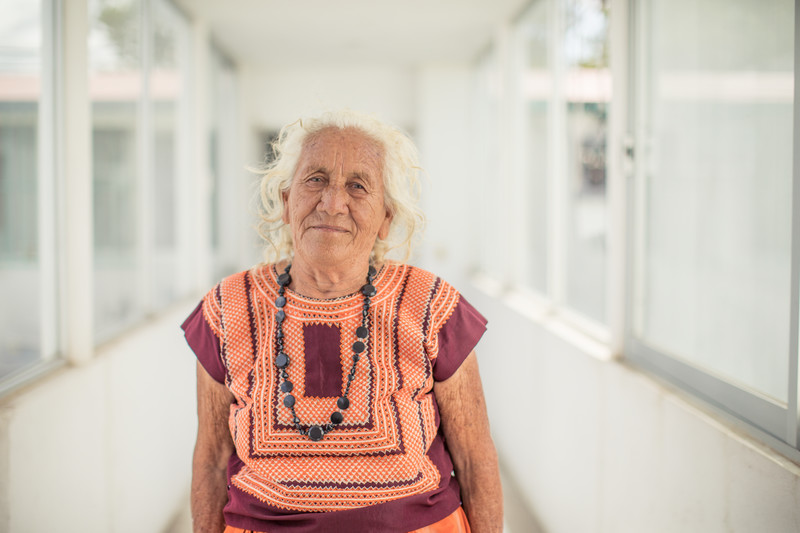
Resilience and commitment in the aftermath of Mexico's devastating earthquakes
In September 2017, Mexico suffered from a devastating magnitude 7.1 earthquake that left hundreds dead and injured, while crushing buildings and destroying infrastructure. We immediately activated our humanitarian response network which assessed damage, deployed personnel, and made sure our mobile clinics were able to operate and reach local communities with vital healthcare and services. Mexfam, an IPPF member association in Mexico, continued to provide free healthcare during and after the record-breaking earthquakes, despite many members of staff losing their homes and even family members. This is what resilience looks like and we thank those that continue to provide people with vital sexual and reproductive healthcare. Photography © IPPF/Brenda Islas Photos: © IPPF/Brenda Islas
IPPF responds to the Rohingya crisis
One of the worst refugee crises in recent years has been that facing the Rohingya. Thousands have fled their homes in Myanmar following a horrific campaign of violence which started in August 2017. Over 600,000 Rohingya sought refuge in Bangladesh, and the majority are still living in camps there until it is safe enough to return. As with any crisis situation, the provision of sexual and reproductive healthcare is essential, and IPPF clinics and local organizations on the ground have helped ensure that these needs do not go unmet. Rehana’s story We spoke to 25-year-old Rehana Begum who is 8 months pregnant with three small children in tow. She was one of the hundreds of thousands forced to leave home amidst the crisis. Heavily pregnant and exhausted, her and her family walked for 15 days to reach safety in Bangladesh. Rehana visited an IPPF health clinic for a check-up and was provided with antenatal care. This was the first time during any of her pregnancies that she has had any medical attention. Before attending the clinic Rehana was unaware of family planning as a way to plan future pregnancies. “I was not aware of family planning methods earlier,” she told us. “I am happy to know that I have options in terms of controlling my family size. I would definitely want to adopt a family planning method after my delivery”. Delivering essential healthcare Working with local organizations, IPPF’s focus is on delivering sexual and reproductive healthcare to the camp. Women and girls make up 94% of clinic visits, with 77% of total visitors who received sexual healthcare under 25-years-old. Field teams have been mobilized to create awareness about sexually transmitted diseases and birth control methods. IPPF has partnered with various local agencies for provision of these services as well as distribution of the kits and medical supplies.

Two earthquakes and four hurricanes: your help is needed NOW
Donate now to support our humanitarian response to Hurricanes Maria, Irma, Jose, and Katia and the earthquakes in Mexico. Four hurricanes and two earthquakes have hit America and the Carribean in the last weeks. The situation is unprecedented and the International Planned Parenthood Federation has activated its humanitarian response network. We’re assessing damage, working on deploying personnel, and making sure our clinics are ready to help in any way possible. Donate now to support our emergency relief efforts. Your gift will be used where it is needed the most. In the past 48 hours three hurricanes and an earthquake have hit the Western Hemisphere region. The situation is unprecedented and the International Planned Parenthood Federation has activated its Humanitarian Assistance Emergency Protocol. We’re assessing damage, working on deploying personnel, and making sure our clinics are ready to help in any way possible. Donate now to support our effort image credits: US Department of Defense







